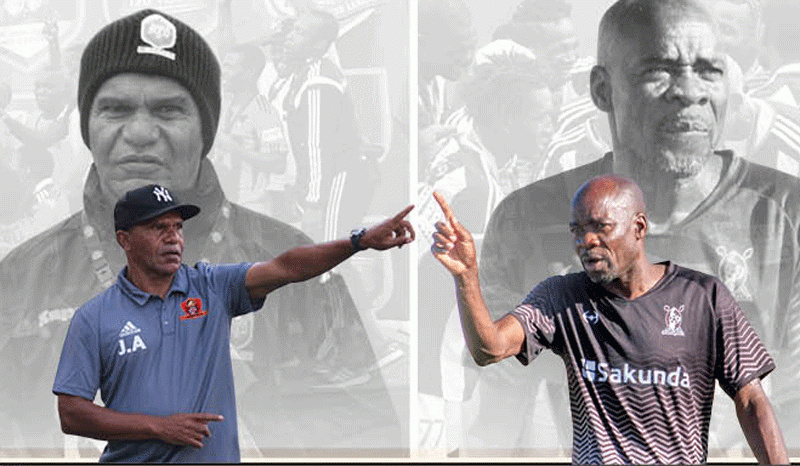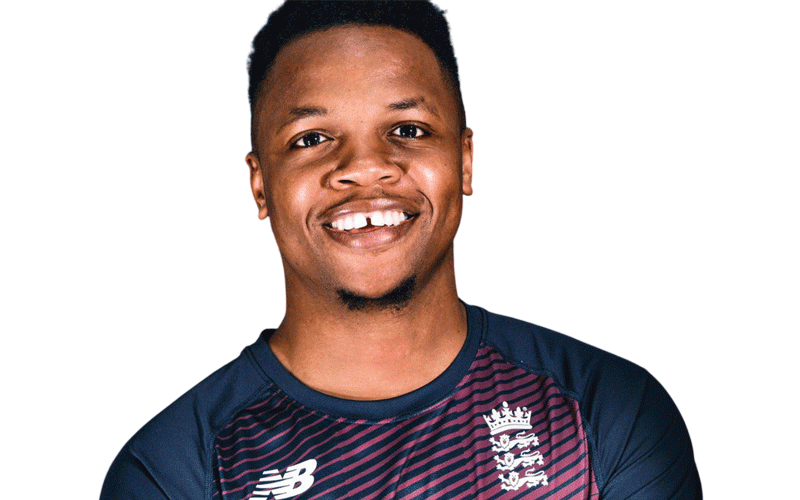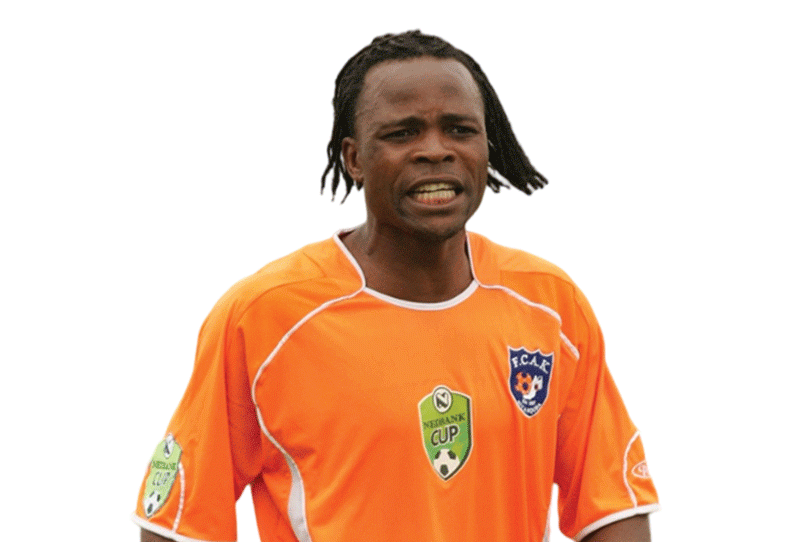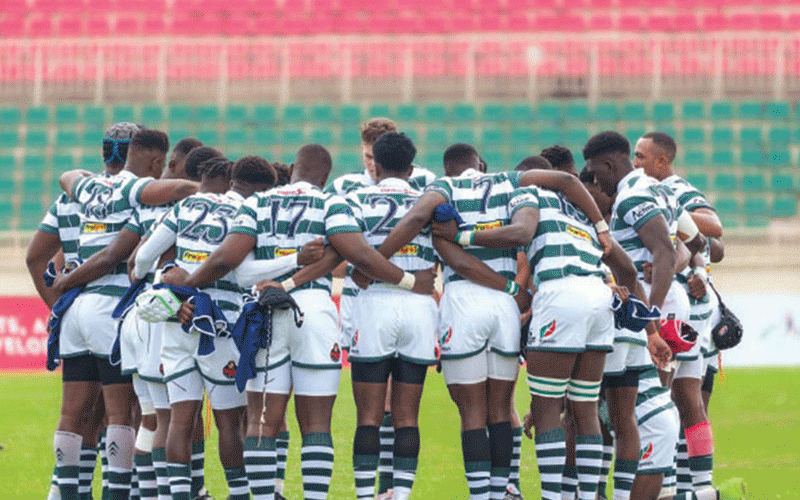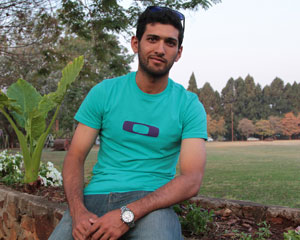
DHAKA — All-rounder Sikandar Raza (ST), born and raised in Sialkot, Pakistan, has become a key figure in Zimbabwean cricket across all formats of the game after performing consistently in the last few years.
Dhaka Tribune
The versatile cricketer and journeyman has a great vision on life, sports and his career. The Zimbabwe all-rounder gave an interview to Dhaka Tribune (DT)during the national team’s tour of Bangladesh where he shared his thoughts on his days working at the Air Force, different phases of his life, how he converted himself into a professional cricketer, career goals and Zimbabwe cricket, among other topics.
Here are the excerpts:
DT: You started your career as an opening batsman. These days you are a middle-order enforcer. Is it tougher?
SR: It took a bit of time. I think at the start, I showed a lot of good signs in playing spin. I spent a lot of time playing spin. I had a two-week camp in Pakistan’s National Cricket Academy, on how to play spin. I also played Dhaka Premier League in Bangladesh, which is a great place to learn playing spin. I went to Pakistan again and again. When Zimbabwe weren’t playing cricket, I managed to find gigs here and there. I kept playing cricket, I think now those sacrifices from the past are showing through the results.

DT: You were in good form in the tri-nation ODI series, scoring 39, nine, 81 and 52 in four innings. You also took four wickets. How do you evaluate your performance?
- Chamisa under fire over US$120K donation
- Mavhunga puts DeMbare into Chibuku quarterfinals
- Pension funds bet on Cabora Bassa oilfields
- Councils defy govt fire tender directive
Keep Reading
SR: In the last 15-20 innings, I think I have had a few starts which I haven’t converted. I have had a few starts that I converted. So there certainly has been a lot of positives during this period. I would like to get more consistent and try to perform better for my country. Most importantly, try to win games for the country.
DT: How did you develop yourself as a better batsman in recent years?
SR: I think with time you get experienced. You tour more, you practice more. You try to see where your weaknesses lie, sometimes through technology to see how the opposition is going to get you out. You control those things, and try to get better every day. The hunger to succeed at international level and to have my name mentioned among the other cricketers was certainly one of the things that motivated me to do well. It is quite humbling to know that people think I have become a lot more consistent in the last year. I would like to be judged through how many games I have won for the country.
DT: You spent over three years at the Pakistan Air Force boarding school in Lower Topa. Did that experience make you a brave cricketer? SR: Maybe. Since I was a kid, my family let me make my own decisions. When I was 11 years old, it was my decision to become a fighter pilot. I was thrilled by the speed and the jets. I passed those exams and did everything possible for becoming one, but unfortunately it didn’t happen. I wanted to be a pilot, it didn’t happen; I wanted to be a software engineer and it didn’t happen and I ended up being a cricketer. I guess God had a plan for me. So maybe by going through all those tough routines to become a pilot is coming in handy in my cricket career. DT: What made you let go of your dream to become a fighter pilot?
SR: I had an injury called bilentrical opacity. When you are at a high pressure and altitude, sometimes you cannot see something that is coming at you, which you can only see from the corner of your eye. You misjudge the distance of how far that plane could be.
They said, “you can be an engineer, you can go to aviation or you can be aeronautical engineer,” but I said no. I came here to be a fighter pilot. If I can’t be a fighter pilot I am out of here.
DT: Did you get the opportunity to fly any fighter plane? SR: I never flew any. I signed the papers for the simulator but my medical papers came in and I never got to fly.
DT: A few of your training partners may become shaheed (martyr). Is it the best way to serve your country?
SR: Everyone is going to go, so what better way to go than to be a shaheed? Now that I am serving my country in a different way, then so be it. This is the path that God chose for me so no regrets.
DT: Why did you decide to become a cricketer?
SR: Destiny, literally. I was having throw-downs in the nets in 2010. The chairman of Southern Rocks franchise was watching me. He said after practice, tomorrow, 9 o’clock is our practice. If you make it, you will be in our T20 squad. So the next morning I offered my fajr prayers (dawn prayer), then drove for three hours and made it to practice. Later I trained with the squad and played in the Stanbic T20 competition.
DT: You have had the experience of opening the batting with Brian Lara in the T20 League for Southern Rocks. How was the experience?
SR: He was laughing the whole time. He told me to keep hitting. He got 11 off 11. I got 93 off 40-odd balls. He just kept laughing and told me to keep going. I kept going.
When the game was over he told me that when you are in your 90s, get to your hundred. He also told me to train harder. He said, “You will face quicker bowlers in international cricket.” He said face bowlers from 16 or 18 yards.
DT: You have a degree on software engineering. Any chance of pursuing that after your cricket career?
SR: Definitely not. (Smiles).
DT: Coming back to cricket, Zimbabwe will soon play the 2019 World Cup Qualifiers. Are you excited, nervous, or for that matter scared?
SR: I am not scared, never been for any challenge. Excited, yes. There’s a lot of good cricket coming and there’s something to achieve at the end of it, which is to go to England for the World Cup. I am nervous before every game. It is a sign that every game means something to me. You want to win games for your country. We are confident. It is the right frame of mind to be in.
DT: What kind of impact the legendary Lance Klusener has had on Zimbabwe?
SR: He has made us use our own brain to work out our game better than him telling us what he thinks. He is constantly encouraging us to think about our own games. Secondly, he has been extremely hard working. He has been hitting balls, throwing us balls and taking us through drills. He has given us a roadmap, mentally, to be successful. It is up to us now how hard we work.
DT: Zimbabwe cricket has become more professional these days…
SR: Since our chairman Doc (Tavengwa Mukuhlani) and Faisal [Hasnain] have joined hands and [Tatenda] Taibu and Streaky (Heath Streak) have taken over, a lot of things have changed. A lot of professionalism has come into our attitude and preparation: how we think, behave, eat, live our lives and make our decisions. It is an exciting period in our careers. I just hope that we can turn it into our full potential and be there at the World Cup.
DT: Zimbabwe cricket has experienced a lot of troubles in the last decade or so. Does it help that you are an outsider?
SR: I don’t know if it makes it easier or harder, but I bring my own identity and a different flavour to the squad. Everyone expects, loves and enjoys it. We come from different cultures in the team. We have all races joining together in one team.
DT: You are the only Muslim cricketer in Zimbabwe…
SR: I am humble and proud to be born in a Muslim family. Every time there’s azaan, my teammates will remind me it is your call for prayers. Some call it the alarm clock because it is time for me to pray. It shows my teammates respect my beliefs and religion.
Nowadays there’s a new law that you cannot have a sub fielder if it is not an external injury. No one stops me. I am allowed to get a replacement, which shows that ICC has a lot of respect for it. When it is time for prayers, I ask my captain the best time to get five minutes. I respect him and he respects my faith and religion.
DT: What are your career goals?
SR: My last goal is to leave this game in better hands than what I found it in. I want to leave this game in a better shape for the future cricketers.
DT: You have had the experience of captaining Zimbabwe to a memorable win against India. What was that like?
SR: It was a funny experience. I was told 20 minutes before the toss that I am captaining. We were waiting for Elton’s [Chigumbura] fitness assessment.
DT: You made your debut against Bangladesh in 2013. Do you have any memories from that time?
SR: I remember that Shafiul Islam took my middle stump out (smiles).
DT: You scored your maiden Test match century against Sri Lanka last year, but Zimbabwe eventually lost the game chasing 388 in the fourth innings. Do you harbour any regrets from that game?
SR: I have no regrets in my life. I live my life with lessons. If I had bowled well in that game, we had an outside chance to win the game.
DT: Zimbabwe recently beat Sri Lanka away 3-2 in an ODI series. Do you think it was a bold statement from Zimbabwe cricket?
SR: Yes. No one has done what we did to Sri Lanka in Sri Lanka before us. We wrote history. It is a fantastic way to remember.

